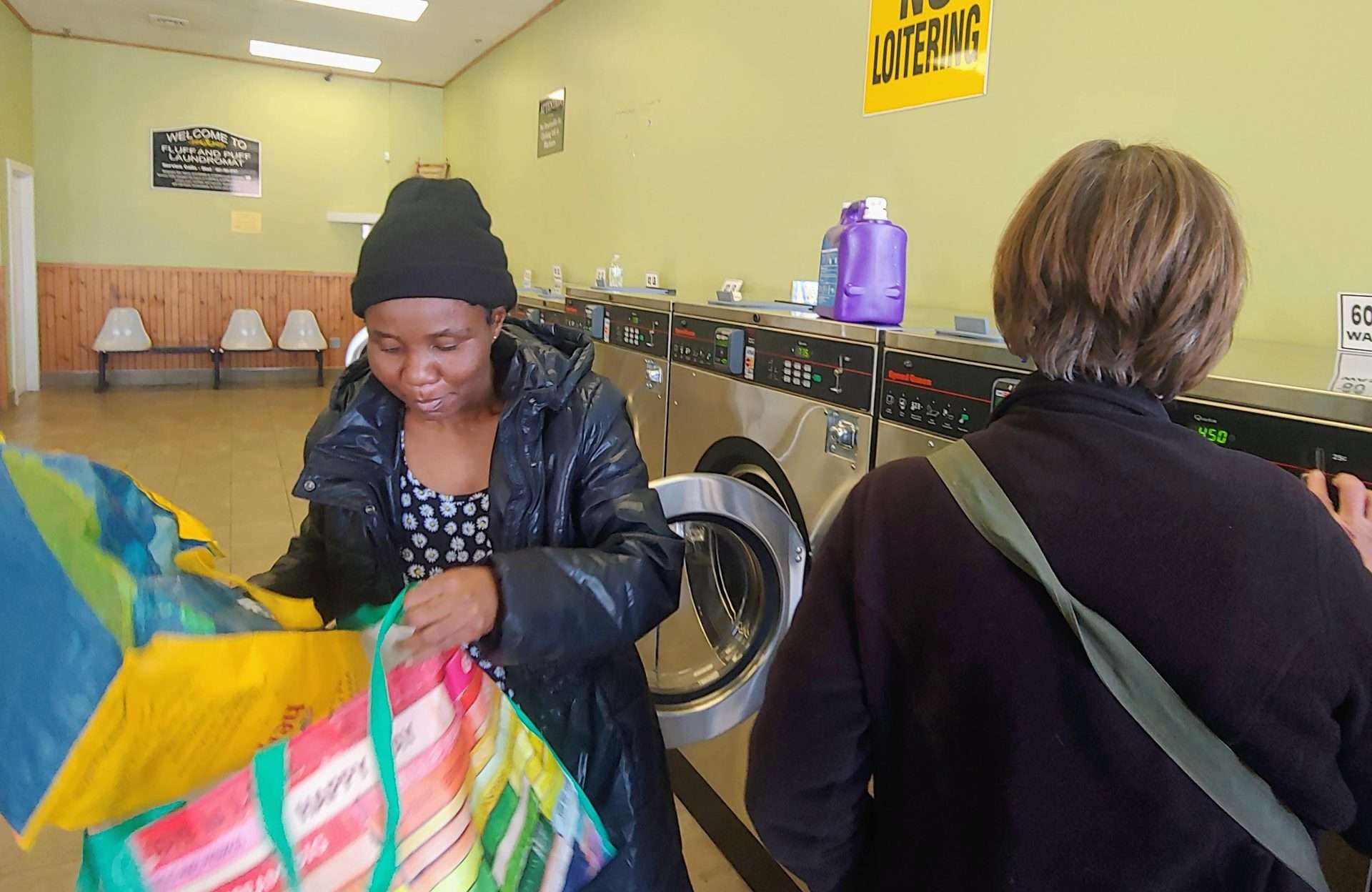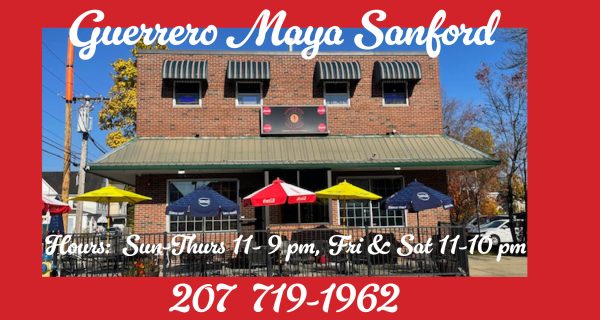Immigrant Support Network Reaches Out to Sanford
- April 7th 2024
- City News

Nadege Kimbaumbu gets help from a volunteer at Fluff-N-Puff laundromat.
Photo: Lee Burnett
By Lee Burnett, Submissions editor
An immigrant mentoring program in Portland is reaching out to volunteers in Sanford to see if there is interest in starting a program here. The Welcoming the Stranger Program, developed by the Maine Association of New Americans (MANA), matches community volunteers with asylum-seeking families to ease their transition to a new life. MANA supports 60 active matches in the Portland area and has received expressions of interest from about 12 Sanford-area people. The organization is putting out the call for more potential mentors before holding an orientation meeting later this month.
“We would love to extend this program into Sanford if there is interest,” said Amy Titcomb, volunteer coordinator for MANA. Titcomb lives in Alfred and has witnessed the reception new residents have received since they began arriving in large numbers last May. “I am so impressed with how Sanford has responded,” she said.
In the last year, a core of volunteers and church groups, working in concert with York County Community Action Corp., has sprung up to welcome the new arrivals in ways that continue to evolve. Assistance has taken the form of donated home furnishings, rides to appointments, bicycles, invitations to events, assistance at laundromats, and guidance in dealing with various aid bureaucracies.
But the aid network is getting tapped out, especially since the numbers of asylum seekers has doubled since the initial influx last May of 130 asylum seekers, primarily from Angola and the Democratic Republic of Congo. The Welcoming the Stranger program would support the existing network with family-to-family matches, cross-cultural training, and guidance in troubleshooting problems as they develop. Each mentoring relationship would be unique to the families involved. “We let each match figure out what works best,” said Titcomb.
MANA provided a list of examples that volunteers may provide:
- rides to appointments or errands
- fun activities in the area such as parks, the Children’s Museum, the beach and community events
- a chance to practice English or ask questions about American culture
- assistance in finding and accessing resources, such as school registration, social services, food banks, clothing, legal resources and furniture.
- assistance with logistical tasks that require strong English such as phone calls,
applications, sorting and understanding mail.
Titcomb said qualifications to become a mentor are mostly a willingness to learn and be flexible.
MANA provided a list of expectations that include:
- A willingness to commit two hours per week for at least three months, with a little flexibility in your schedule. For example, if you can only meet on weekends and you can respond to text messages in between, that works great. If your only availability is 1-4 pm on Thursday, that probably won’t work in building friendship with someone from a culture less rooted in scheduling.
- Facility with a smart phone. Most program participants communicate
mainly through WhatsApp or text messages rather than phone calls or emails.
Translation apps like Google Translate or Say Hi are a big help too. - A willingness to navigate a language barrier, by speaking slowly and clearly and being
patient with misunderstandings. Fluency in languages other than English is not required,
but volunteers who know some French or Portuguese can make use of it. - Experience navigating cultural differences or a strong motivation to learn. This means
having patience, making the most generous interpretation of confusing interactions, and
being willing to examine your own biases and assumptions.
To register your interest in Welcoming the Stranger, you can sign up here





